A couple found an abandoned, 96-year-old home in the Japanese countryside and turned it into an Airbnb. It's available for rent from $113 a night — check it out.

Daisuke Kajiyama and his late wife, Hila, spent two years restoring an abandoned traditional Japanese house.
The couple turned the 96-year-old wooden home into a quaint guesthouse in Shizuoka prefecture of Japan.
The guesthouse can be rented on Airbnb, where nightly rates start from $113 per night.
After seven years of traveling around the world, Daisuke Kajiyama decided that he wanted to head back to his hometown to start a guesthouse with his late wife Hila.
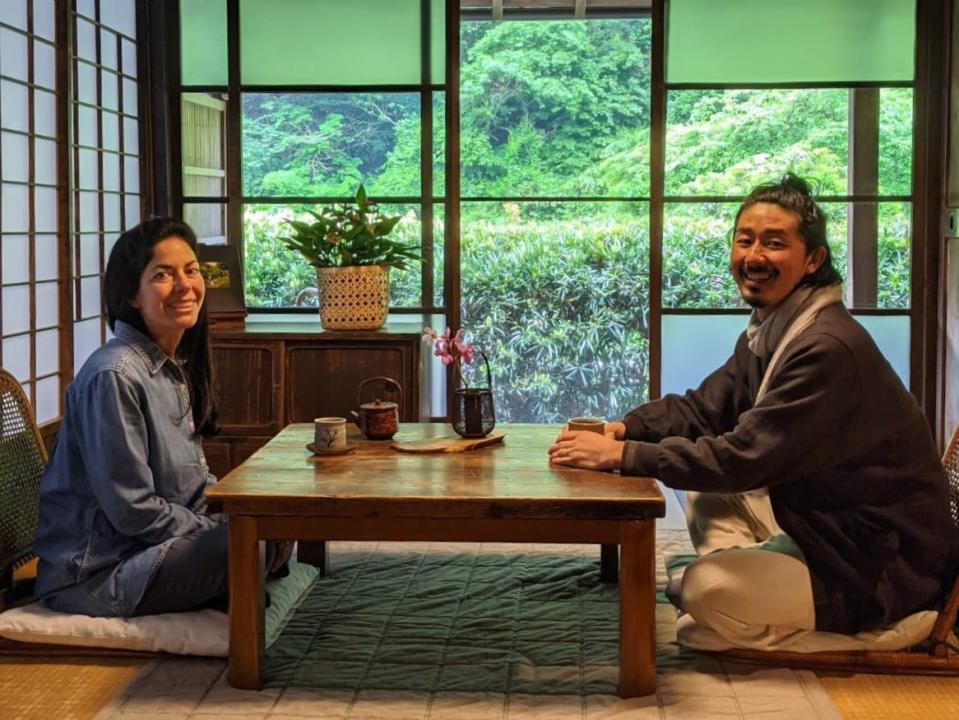
"She's from Israel, but we met in Nepal," Kajiyama, 40, told Insider. "And we came to Japan together."
Although Kajiyama is Japanese, he left the country right after graduating from university — backpacking and working in far-flung places like Portugal, Thailand, and Canada, among many others.
It had been years since he returned home to Tamatori, a charming village surrounded by bamboo forests and rice fields in the Shizuoka prefecture.
"We didn't know what it would be like, so it was a mystery for the both of us," Kajiyama said. "I've been out of it for such a long time that it didn't even feel like it was my country."
Kajiyama always knew he wanted his guesthouse to be a traditional Japanese home, but finding the right one to fix up wasn't easy.
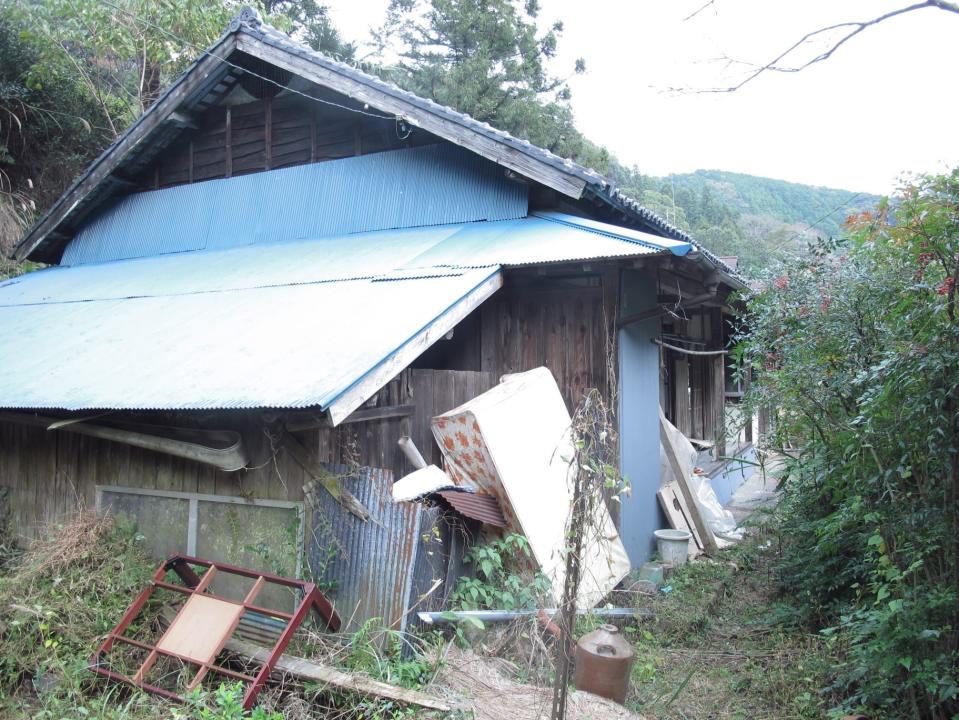
"Most of them are passed down through generations — they're like family heirlooms," Kajiyama said. "And I was a stranger to these families, with long hair and a mustache, so it was not easy for me to find."
Even if there was no one living in the houses, many families use the space as extra storage and are reluctant to sell them, he said. That was when it occurred to him to find an abandoned traditional house instead.
One day, while he was wandering about the neighborhood, a local grandmother stopped to assist him in his search.
She pointed to two nearby buildings that were side-by-side — a former green tea factory and an old farmer's home — and told him they were empty.
"I thought maybe there was a chance to get them," Kajiyama said.
When Kajiyama finally managed to get in touch with the owner, he was met with a lot of skepticism. The owner felt the structures had deteriorated so severely that they weren't livable.
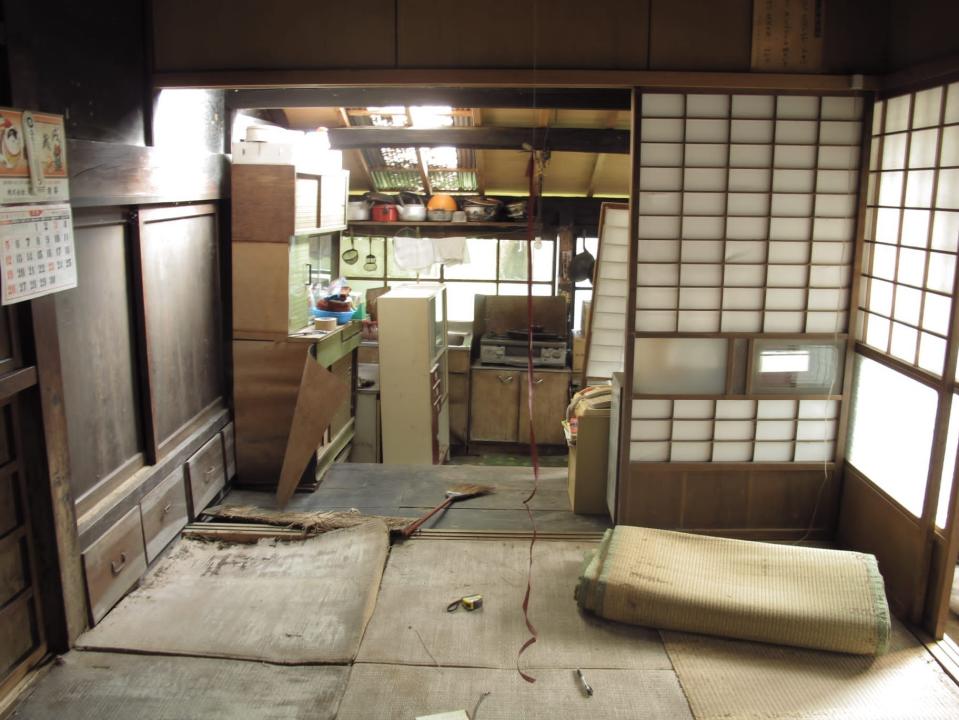
"But he didn't say no, so I thought I had a chance," Kajiyama said. "For the next month, I kept coming by to check the house while negotiating with the owner."
In the end, Kajiyama succeeded — the green tea factory and the old farmer's house were his to use. The former factory would be his home, while the farmer's house next door would become the guesthouse.
The properties still belong to the original owner, but Kajiyama doesn't pay rent.
"The deal was just that I had to take all the responsibility for the house myself," Kajiyama said. That includes the expenses of restoring the buildings.
This arrangement between him and the owner is reflective of the cultural practices in the area, Kajiyama said.
"It's not about business. It's not about money," he said. "For many abandoned houses, as long as someone can take care, the family will be happy."
Kajiyama says that his relationship with the owner is good, and they trust each other to uphold the arrangement even without any financial transactions.
Abandoned houses are a common sight in the Japanese countryside, as younger generations move away from their villages in favor of the city, Kajiyama said.
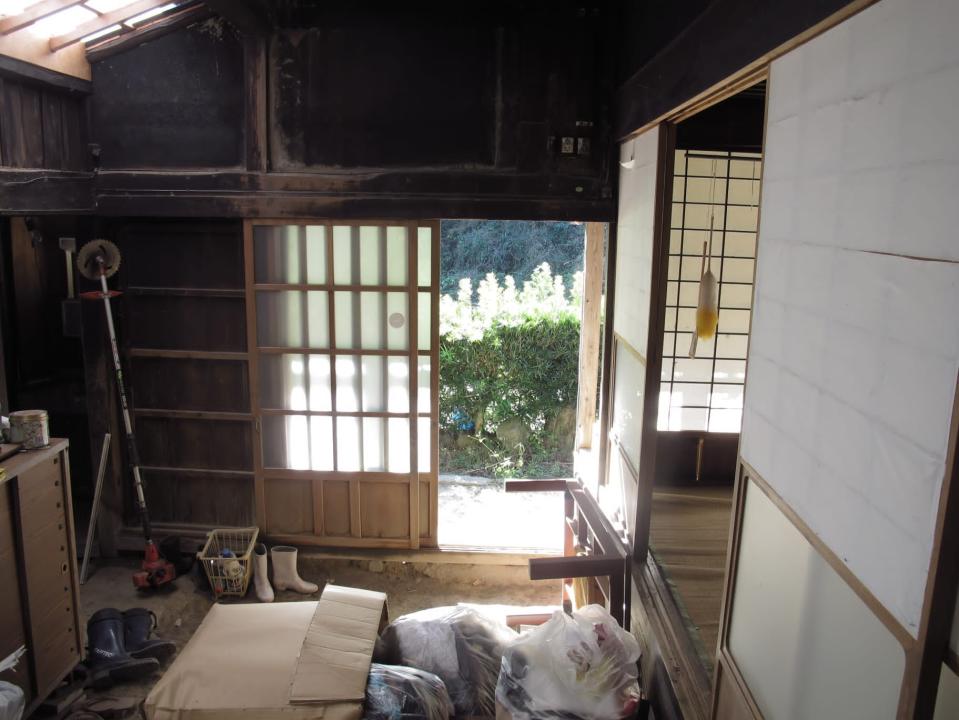
But these children have a responsibility to take care of their aging parents, so they'll bring their parents over to the city, leaving their countryside homes empty, Kajiyama said. This was also what happened with the abandoned house that he took over.
Over time, these properties fall into disrepair because the families lack the funds and the time to maintain the homes, he said.
As Insider's Lina Batarags and Cheryl Teh reported in 2021, these abandoned houses end up creating "ghost towns" in rural communities, especially in recent years.
The alternative to leaving the house empty is to demolish it, Kajiyama said.
"In Japanese culture, there's a belief that if you had an old house that you didn't take care of, you'll have bad luck for the next house," he said. "That's why some people choose to get rid of abandoned houses entirely."
But Kajiyama's guesthouse plans were ambitious. No one had lived in the house for seven years, and everything had been left the way it was on the day it was abandoned.
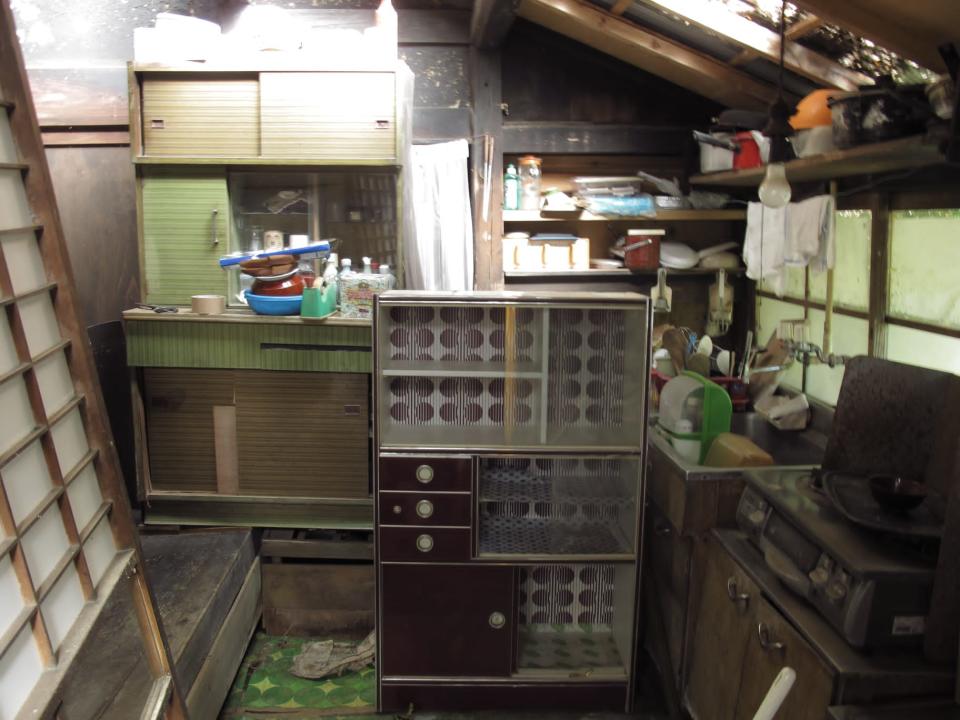
"Everything left on the table was still there, and there was even food in the fridge," Kajiyama said.
The most difficult part was cleaning the place up before he could even start on any of the renovation work.
"The cleaning stage was not easy because you needed to sort all the garbage —someone else's garbage — and it took me a lot of energy actually," Kajiyama said.
Despite the house's shabby appearance, the wooden structures are completely original, he said.
"The house has a completely different atmosphere," he added. "It's a really simple farmer's house. But what's nice is that they didn't renovate at all."
Through 96 years of the house's history, not a single thing has been changed, he added.
Kajiyama is not a professional carpenter but says he has some building experience from the odd jobs he picked up while backpacking.

 Yahoo Autos
Yahoo Autos 